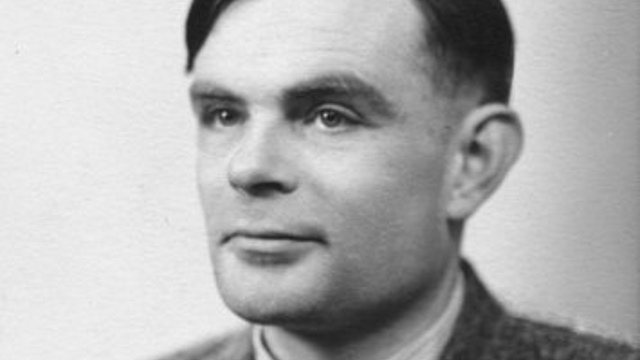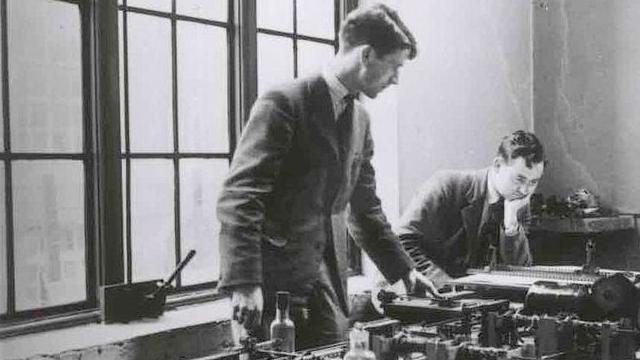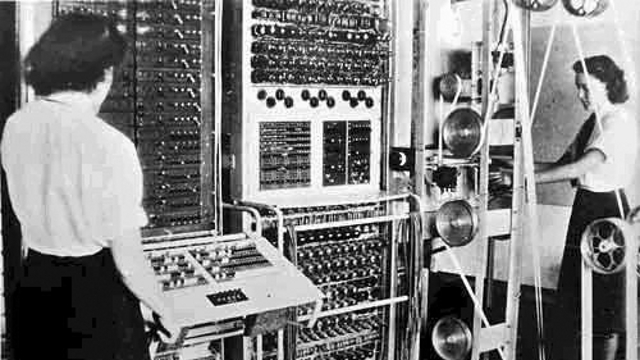10 Britons who shaped the history of computing
From Babbage and Wilson to World War Two's unsung heroes
This was formed from the idea that something is either true or false, at which he arrived by writing an algebra that incorporated logic into mathematics. In the 1930s, researchers saw that Boole's two-valued logic (binary) lent itself to the analysis and design of circuits used in computers, calculators and whole range of other devices.
Boole's algebra became used to map out electrical pulses represented by binary digits (0s) and bits (1s) in digital computers and electronic circuits. A contribution that went on to affect billions of people worldwide, it's certain that Boole was oblivious to what his life's work would mean for the world in the 20th century.
5. Alan Turing

Born in 1912, Alan Turing was a mathematician, philosopher and computing pioneer most commonly associated with developing algorithms for 10 'Colossus' computers that were used to break German enigma codes during World War Two.
Itself an impressive feat, it is just one of Turing's achievements. He was the first to ask the question of whether machines could think like humans, and he believed that an intelligent machine could be created by following blueprints of the human brain.
In 1950, he devised the Turing test, which is used to find out if a computer has artificial intelligence. The test involves a human (known as the interrogator) asking questions to another person and a computer, then guessing which is which. If he believes the computer is the human it would pass the test of intelligence.
Turing was gay and was placed on trial in 1952, when homosexuality was illegal, for actions relating to his sexual orientation. Given the choice of chemical castration or being thrown in prison (he opted for the former), he took his own life two years later by biting into an Apple laced with Cyanide. He received an official posthumous apology from then-Prime Minister Gordon Brown in 2009 for the discrimination he experienced.
6. Maurice Wilkes

These days, computers are the ultimately productivity tools, but back in the 1940s, the few that existed resembled metallic tombstones of limited functionality.
Sign up to the TechRadar Pro newsletter to get all the top news, opinion, features and guidance your business needs to succeed!
Sir Maurice Wilkes set out during that decade with a vision to make computers practical. That was achieved when he led the team that developed the Electronic Delay Storage Automatic Calculator (EDSAC), the first practical general purpose stored program electronic computer.
When Wilkes began designing EDSAC in 1946, he set out to make it usable by ordinary researchers and scientists. It was also among the first general purpose computers that could store programs in rewritable memory.
Following on from progress made by Hungarian engineer Dr John von Neumann and the EDVAC (Electronic Discrete Variable Automatic Computer), the EDSAC used vacuum tubes for computation and became the basis for the Lyons Electronic Office (LEO), the world's first business computer.
7. Tommy Flowers

Mathematician Tommy Flowers is rarely mentioned in the same breath as Turing for his contributions to deciphering German Codes at Bletchley Park during World War II, something of an injustice for many people today.
While Turing was developing the algorithms used to break the codes, he lacked a computer with the necessary hardware capabilities to decode them at sufficient speed. He approached Flowers, who worked for the telecommunications branch of the Post Office (GPO), for help. Flowers and his team set about creating a new machine in February 1943, 'Colossus', which some rank among the greatest inventions of the 20th century.
He could see that Colossus needed to use many more valves than other complicated electronic devices at the time, but was held back by a lack of support from the Ministry of Defence. Undeterred, Flowers and his team built the machine using their own money in 11 months and immediately put it to work breaking codes.
